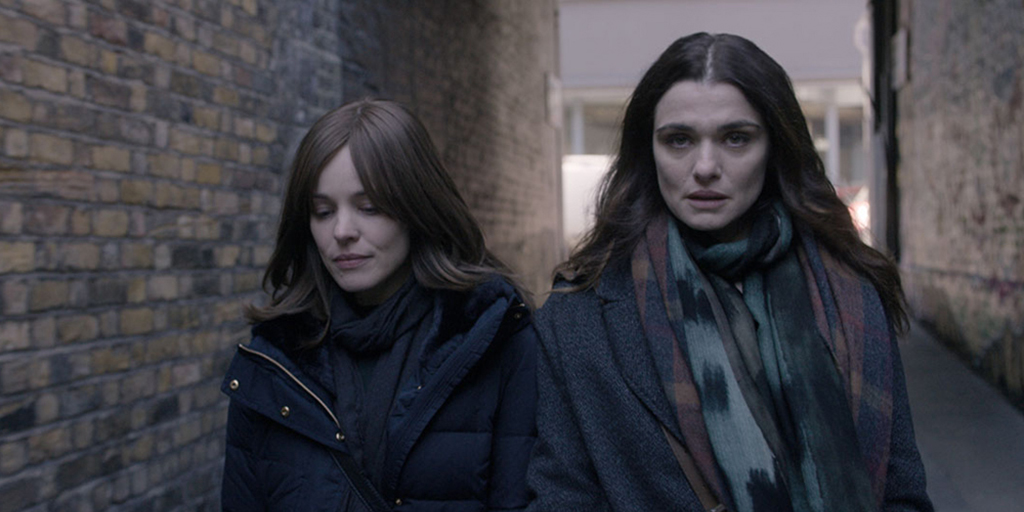Disobedience is the latest film from Chilean Writer/Director Sebastian Lelio and is his first English language film. His films have explored themes of characters dealing with the harsh truth of reality and this powerful and intriguing film does not disappoint.
This is first and foremost a love story, told from within a close-knit Orthodox Jewish community in London. When their rabbi dies, his shunned daughter, Ronit Krushka, played by Rachel Weisz, returns from across the pond to honor him at his funeral.
Ronit’s initial homecoming is filled with awkward moments, such as when she tries to hug Dovid, played beautifully by Alessandro Nicola, only to have him withdraw – she has forgotten this is not appropriate. Also awkward is realizing he has married Esti, played by Rachel McAdam, revealed eventually to be Ronit’s past lover and the cause for Ronit’s estrangement. The triangular nature of their relationship unfolds as Ronit’s relationship with Esti is rekindled.
Dovid and Esti are true believers in their faith, yet despite that, they are not caricatures. They make unexpected choices and show themselves to be very complex and haunted by the choices they need to make. Dovid must keep his house in order, meaning he and Esti must act with honor while Ronit is visiting. Esti must not be seduced by Ronit, who wants nothing more than to be with Esti. Esti, in contrast, wavers between doing what she wants and doing what is right per her religious and cultural beliefs.
All eyes of the community are on them throughout the movie from the uncomfortable dinners to the moment the women are seen together. It is important to note that even though religion is a central character in this film, this is not a morality tale where the characters are being forced to choose between religion and self, but rather how they are free to choose how to live their lives. Esti struggles with the choice to go against her beliefs if she is to honor who she is.
Rachel Weisz’ interpretation of wild child Ronit is a little one-sided, but that is splitting hairs with these powerhouse actors. Her character is the opposite of what her rabbi father brought her up to be and Esti is the perfect foil – the example of what Ronit might have become had she stayed. Rachel McAdams shines the brightest in her role as the repressed Esti. She has the most to work with as a woman trapped in a marriage and her faith and turns in the most nuanced performance. Alessandro Nicola gives a very restrained yet powerful performance as the penitent husband and potential successor rabbi.
The one thing that I found off in this film is the pacing. The film is full of long-smoldering silences, some long silences, and again some long moments. Did I mention there are some long silences? The film is beautifully shot with a visually striking color scheme which is as muted and restrained as its characters. Danny Cohen, the cinematographer who brought us Room and The King’s Speech, did a beautiful job of bringing us into the different characters’ points of view as did the long silences which allowed the freedom to ponder the characters’ inner lives.
This is a love story that is passionate, touching and heart-wrenching. The sex scenes are intensely personal and filmed with numerous close-ups that bring the viewer into Ronit and Esti’s world in a very intimate manner. These love scenes have generated a lot of buzz, but are not gratuitously thrown in to sell tickets.
Overall I enjoyed this film. It’s not perfect and is a little heavy-handed in parts, but it asks the audience to ponder the fierceness of societal taboos and the toll it takes on individuals. It made me think, it brought me into the emotional vortex of a triangular relationship, and it made me curious about the Orthodox Jewish culture, which I know nothing about. I appreciate that this film manages not to be preachy despite the religious overtones. Disobedience is a film that has a lot to say and it does so in a reflective and personal way that left this viewer thinking. A story about love as an addiction and affliction – something that cannot be denied – is worth seeing.
-Lara McElroy
